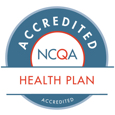Quality Assurance and Performance Improvement
The Denver Health Medical Plan (DHMP) Quality Improvement Program is designed to support the mission of DHMP by promoting the delivery of high quality, cost effective and accessible health care services that enhance or improve the health and wellbeing of our members.
The Quality Improvement Program:
- Oversees the Quality Assurance and Performance Improvement (QAPI) Plan for DHMP, including applicable regulatory requirements, committee governance structures, continuous performance improvement initiatives, and NCQA health plan measures. This work is focused on improving access to care, quality, and health outcomes for members that we serve.
- Monitors performance improvement activities across all DHMP health plans, including efforts to strengthen continuity and coordination of care. Provides a structured framework for the continuous quality improvement cycle by identifying, prioritizing, and addressing opportunities related to care coordination, social risk factors affecting health, and member experience. This includes ongoing collaboration with network providers and internal DHMP departments to support effective service delivery and improved health outcomes.
Quality Assurance Performance Improvement
Program Descriptions
- Describe the QI Program and associated activities
- Outline various committee structures
Evaluations
- Provide detail of the quality activities, which are are data-driven using prior-year QI analyses to guide interventions and decisions, with a focus on health outcomes
- Detail how we performed in different measures (cancer screenings, member satisfaction, care management, etc.)
Work Plans
- Are developed for the upcoming year using prior year quality activity data
- Outline the work and goals of various departments across the organization for the coming year
QI Practitioner/Provider Support
DHMP aids network practitioners/providers in achieving shared objectives of improving quality and addressing population health concerns through quality-related data sharing, offering evidence-based tools for shared decision-making (SDM), and providing support for transforming practices among primary care practitioners. This support includes facilitating the transition toward more integrated or advanced practices and adopting value-based care delivery methods. If your practice is interested in transforming to a Patient-Centered Medical Home (PCMH), be sure to check out our Patient Centered Medical Home Transformation Best Practices tip sheet. Additionally, DHMP offers cultural competency training for network practitioners and staff.

The National Committee for Quality Assurance (NCQA) is non-profit organization widely considered to be the gold standard for health plan accreditation, and DHMP is committed to continuously improving the quality, accessibility, and overall member experience of the communities we serve.



